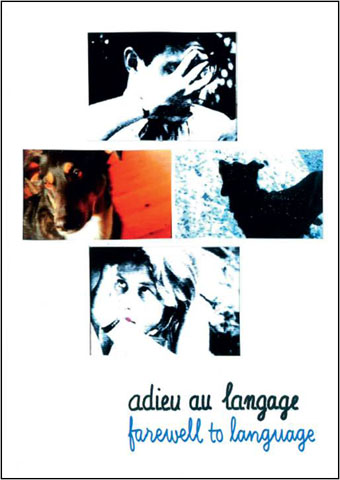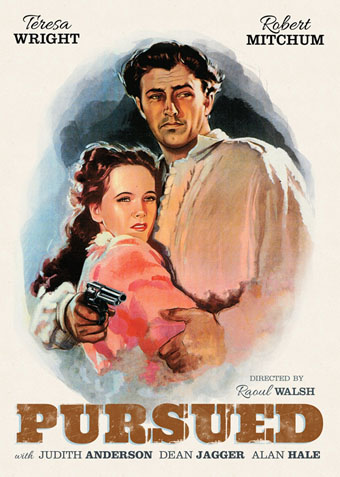Adieu au langage is the project Jean-Luc Godard is currently working on, and we have our first glimpse of it in the closing minutes of a documentary, Jean-Luc Godard, the tenth and final installment of the Swiss television series, Cinéma Suisse. That alone would make this appropriately multi-lingual half hour must-viewing, of course, but all you really need to know is that, while it’s directed by Fabrice Aragno, Godard himself is credited with the Scénario. Thanks to Nicole Brenez for spreading word.
Google won’t help you with the Godard, but it’ll come in handy for the next item, via Andy Rector, if your Spanish is a little rusty (or, as in my case, nonexistent). For El Mundo‘s magazine El Cultural, Carlos Reviriego talks with Víctor Erice, Manoel de Oliveira, Aki Kaurismäki, and Pedro Costa about the short films they’re shooting that, collected, will be Histórias do cinema, a project initiated by the Fundação Cidade de Guimarães, which is to say, the foundation set up to organize and promote events celebrating the northern Portuguese city of Guimarães, the 2012 European Capital of Culture. The foundation, by the way, also has a hand in Adieu au langage, which El Cultural confirms will indeed be presented in 3D.
Erice’s Vidros parties centers on workers in a textile factory; Oliveira’s Metrópole Conquistadora, Conquistada was shot in May with the help of 200 extras, all armed with cameras; Ilkka Koivula (Le Havre) plays a waiter in Kaurismäki’s “sad comedy” Tasqueiro; and Ventura (Colossal Youth) returns in Costa’s Sweet Exorcist. A few more notes on Costa: He’s receiving the Special Festival Award for the outstanding contribution to the artistic development of the moving image from the Split Film Festival, which opened yesterday and runs through Saturday; and the ICA in London will be celebrating Second Run’s release of Casa de Lava (1994) on September 24 with two special evenings, a screening of Casa de Lava and an onstage conversation between Costa and Chris Fujiwara on September 30 and a screening of Ne Change Rien (2009) and another conversation, this one with David Jenkins, on October 2.
In other news. Peter Bogdanovich, who spent the summer presenting his fascinating John Ford File, is opening up his Hawks File: “While I kept a card file on every movie I saw, 1952-1970, I also kept track of films I watched by directors I was most interested in at that time, 55 of those, from Aldrich, Robert, to Wilder, Billy. I had separate cards for these, listing their pictures in the order in which I saw them… We’re going to go through these Howard Hawks cards in that same fashion, starting with his Monkey Business, which I saw when it came out in 1952, and ending with Rio Lobo, Hawks’s last film, which I viewed also when it was first released in 1970.” Hawks has been on Richard Brody‘s mind lately, too.
David Bordwell has returned from Toronto with pages and pages of notes. A few days ago, he shared a few on digital vs. analog moviemaking; today, he writes about Olivier Assayas‘s master class and the Asian Film Summit and considers the question, “So did VOD kill, or at least wound, the DVD star?”
DVD/Blu-ray. They’re still around, of course, and in the New York Times, Dave Kehr reviews Olive Films’ release of Raoul Walsh‘s Pursued (1947), with Robert Mitchum and Teresa Wright, Claude Sautet’s Max et les Ferrailleurs (1971), with Romy Schneider and Michel Piccoli, now out from Shout! Factory, and John Boorman’s first feature, now available from the Warner Archive Collection: “With its screenplay by the playwright David Nichols (A Day in the Death of Joe Egg), Having a Wild Weekend is as slyly subversive of the teen musical as Mr. Boorman’s next film, Point Blank (1967) would be of the gangster movie.”
Dennis Lim in the Los Angeles Times: “A worthy tribute to an unclassifiable masterpiece, Patience (After Sebald) is an homage that avoids the traps of slavish imitation. It’s less an adaptation of The Rings of Saturn than an expansion of it—and not just that, less a feat of literary criticism than something more elusive, a film that uses the tools of cinema to evoke the experience and the pleasure of reading.” Out from Cinema Guild.
List. Nearly two dozen countries have sent their entries into the race for the Foreign Language Oscar. Beth Hanna‘s got the titles at Thompson on Hollywood.
In the works. The Playlist‘s Kevin Jagernauth has the latest on James Gray’s The Nightingale, with Joaquin Phoenix, Jeremy Renner and Marion Cotillard.
Listening. Moby Dick Big Read. Like it says on the tin, 135 chapters, one read out loud and presented as a free download each day, beginning with Tilda Swinton reading Chapter 1, “Loomings.” Each reading will be “accompanied by images inspired by the book from contemporary artists including Anish Kapoor and Antony Gormley,” reports Alison Flood in the Guardian, who notes that other readers lined up include Stephen Fry, Simon Callow, and—get this—British Prime Minister David Cameron.
Viewing (0’33”). “Johnnie To is back to basics with this mainland crime drama!” exclaims Wildgrounds, where you’ll find the teaser for Drug War.
Recently tumbled: Alvin and Elaine Lustig’s designs for works by Tennessee Williams and Japanese posters for films by David Cronenberg.
For news and tips throughout the day every day, follow @KeyframeDaily on Twitter and/or the RSS feed. Get Keyframe Daily in your inbox by signing in at fandor.com/daily.





